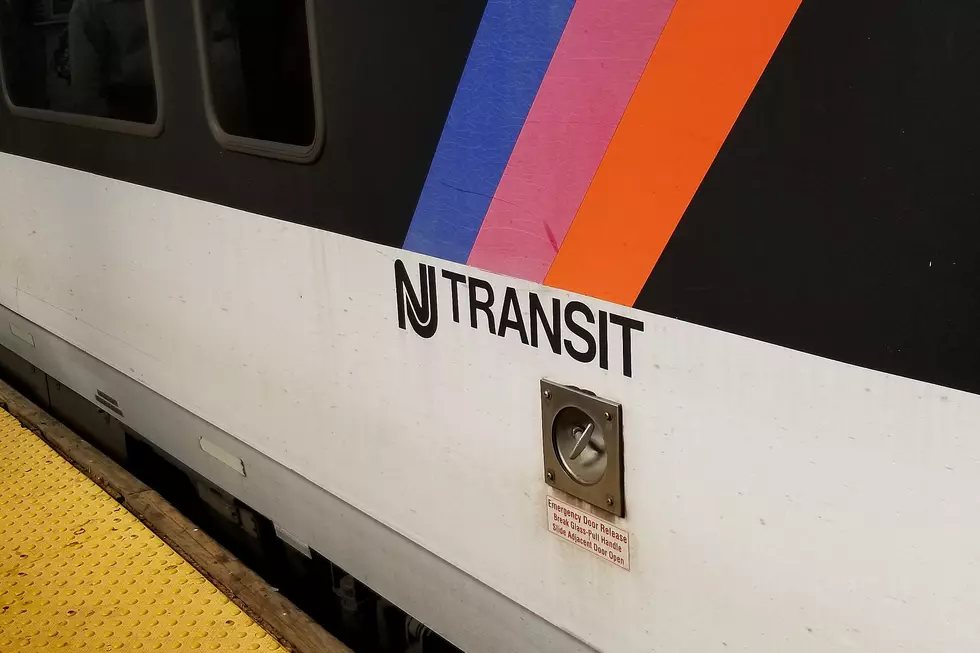![Should Employee in Medical Pot Program Be Barred from Safety-Sensitive Job? [POLL]](http://townsquare.media/site/385/files/2014/04/njt1-300x200.jpg?w=980&q=75)
Should Employee in Medical Pot Program Be Barred from Safety-Sensitive Job? [POLL]
A New Jersey Transit employee who was enrolled in the state’s medical marijuana program was suspended from his job and sent by the agency to rehab – this following his having applied for another job with the agency - a job that would require him to be out in the field in a safety-sensitive position which would have mandated he be subjected to a blood test.
Upon notifying the medical director of the agency that he was enrolled in the program, he offered that should this pose a problem, he’d apply for a non-safety sensitive position.
The agency told him he had no other choice but to take the blood test, which, as expected, came back positive, and was sent to rehab along with being suspended without pay.
According to this from nj.com:
In December, Davis was “bumped” from his job by a more senior employee, according to the lawsuit filed last month in state Superior Court in Essex County. When he sought an available job as a “block operator” a field position, he was sent for a physical exam that required a drug test.
He told NJ Transit’s medical director he used medicinal marijuana, and offered to apply for “non-safety sensitive position” if his treatment was a problem, according to the lawsuit.
The suit says the medical director Patrice Verner, “told him that he had no choice but to take the drug test and if it came back positive, he would be sent to drug rehabilitation.”Davis tested positive for pot on Dec. 28 and was sent to a drug treatment program. Since then, he has been out of work and not receiving a paycheck.
“Instead of working to accommodate its disabled employee, NJ Transit treated him like a drug addict,” according to his attorney, Sarah Fern Meil of Milford, who said that to her knowledge this was the first lawsuit challenging an employee’s right to work and be enrolled in the medical marijuana program.
“NJ Transit’s actions violate both common sense and the law against discrimination designed to protect workers and disabilities like Charlie,” she added.
An NJ Transit spokesman, John Durso, said the drug-testing requirements were intended to ensure the safety of customers.
“All employees applying to and occupying safety-sensitive positions at NJ Transit are required to submit to, and pass pre-employment and random drug tests in accordance with Federal Railroad Administration and Federal Transit Administration guidelines,” Durso said.
Citing the regulation, he said the U.S Department of Transportation “does not authorize ‘medical marijuana’ under a state law to be a valid medical explanation for a transportation employee’s positive drug test result."
A number of questions come to mind upon hearing the agency’s reaction.
Should the agency have accommodated the employee with his request for a non-safety sensitive position if he didn’t pass the drug test (which he didn’t); even though he already applied for the field position?
Since the federal government doesn’t recognize medical marijuana as an acceptable treatment; doesn’t this give the agency reason enough to send the employee to treatment – despite the state’s approval of medical marijuana?
Finally, would he still be allowed to be in a safety-sensitive position had he been on more powerful yet legal pain-killers?
Employers are the ones judges usually rule in favor of when it comes to drug-testing employees who use medical marijuana in state approved programs.
This will only change once the federal government gets on board and recognizes medical marijuana as an acceptable form of treatment for certain ailments.
What do you feel are the chances of that?
Slim to none - and Slim just left town!
More From New Jersey 101.5 FM









